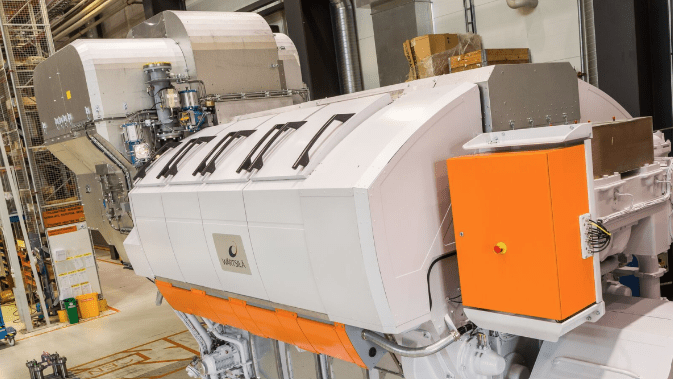The Transport Emission Control Team at VTT Technical Research Centre of Finland recently conducted a study on methane slip and other emissions from an LNG-powered marine engine operating under real-life conditions. The study focused on the newbuild cruise ship MSC World Europa, specifically one of its engines, a Wartsila 46DF 14-cylinder engine. The engine was operated on LNG fuel for one week while sailing the Mediterranean. The study found that methane slip varied depending on engine load, with lower values reported at higher loads.
The findings of the study revealed that at load conditions of 50% and above, low methane slip values resulted in a 13-15% lower total CO2 equivalent emissions compared to Marine Gas Oil (MGO). However, at lower load conditions, this situation was reversed. The analysis of the vessel’s engine load profile over eight months showed that the majority of the vessel’s operation time occurred at engine loads higher than 40%, indicating the potential for methane reduction efforts through operational patterns.
The study, part of the Green Ray project coordinated by VTT Technical Research Centre of Finland, included various partners such as Chantiers de l’Atlantique, CMA Ships, Wärtsilä, Shell, and DNV, among others. The project, which began in June 2022 and received funding from the European Commission, aims to assess and prevent methane slip from LNG engines in all conditions within both existing and new vessels. This research is crucial in addressing emissions from marine engines and finding ways to reduce environmental impact.







